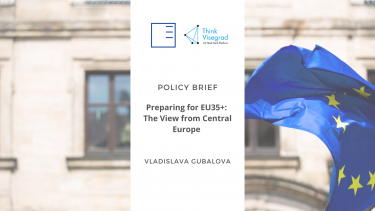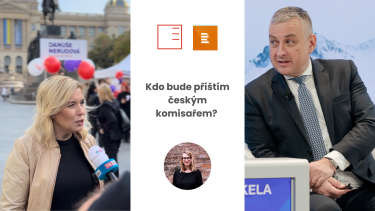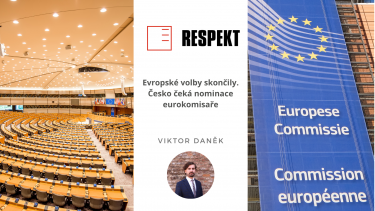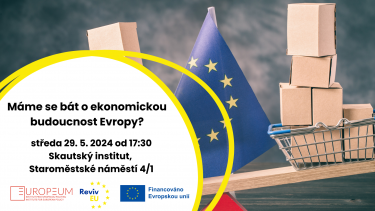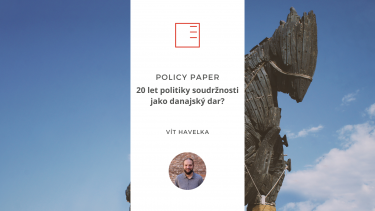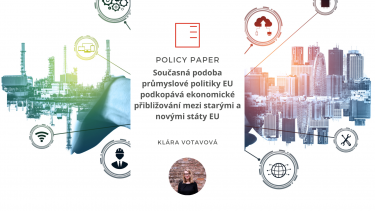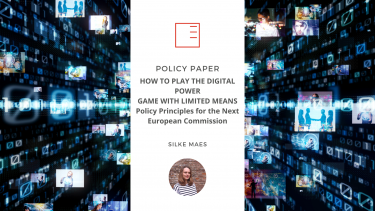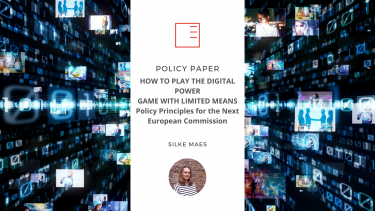Policy Brief | Preparing for EU35+: The View from Central Europe
Despite the historical support of EU enlargement policy by the Visegrad Four (V4), these Central European states are now faced with the challenge of reconciling their stances with the new realities of the process. As Ukraine and Moldova opened their accession negotiations, the EU seems to be torn on the questions associated with the future enlargement(s) - institutional reforms and changes within the EU budget. Transitioning from economic beneficiaries to potential contributors, the V4 states must evaluate the potential political and economic impacts of new members on both the EU and their domestic levels. Writes and proposes recommendations Vladislava Gubalova from GLOBSEC.
Show moreČeský rozhlas | Who will be the next Czech commissioner?
The Mayor's party, who have the right to nominate a European Commissioner under the Czech coalition agreement, have announced that they will nominate both Danuše Nerudová and Jozef Sikela for the position of the next Czech European Commissioner. The government is due to decide on a candidate by the end of August. Can the Czech Republic get a highly sought-after economic portfolio? What are the advantages for the country if it gets it? And how difficult is the process of questioning candidates in the European Parliament, the so-called grilling? Klára Votavová, researcher at EUROPEUM Institute, answered these and other questions in an interview for Czech Radio.
Show moreRespekt | The European elections are over. Czechia is awaiting the nomination of a European Commissioner
Who will become the new Commissioner for the Czech Republic? And what topics should we focus on? According to the Deputy Director of EUROPEUM Institute Viktor Daněk, it is necessary to abandon the idea of a strong economic portfolio in the next European Commission. Instead, we should focus on gaining influence and respect through other areas, he commented for the weekly Respekt.
Show moreRevivEU | Should we fear for the economic future of Europe?
We invite you to a public podcast recording focusing on the discussion of the impacts of the COVID-19 pandemic on European industrial policy and its potential consequences for the Czech economy and society. We will discuss the new technological dynamics resulting from the pandemic and explore ways in which the European Union can respond to technological competition with the USA and China.
Show morePolicy Paper | 20 years of cohesion policy as a "Beware of Greeks bearing gifts"?
It has been 20 years since the Czech Republic and 9 other Central, Southern and Eastern European countries joined the European Union. This was on the promise of increased prosperity and the so-called economic catching-up of the post-communist part of Europe. Cohesion policy was to play a key role here. Vít Havelka writes in his Policy Paper.
Show more
Policy paper | Current EU industrial policy undermines economic convergence between old and new EU countries
The post-communist states of Central and Eastern Europe, including the Czech Republic, joined the European Union at the height of globalisation and the dominance of the so-called Washington Consensus policies. However, the global economic crisis of 2008 showed shortly afterwards that these policies had their limits. Read more in Klára Votavová's Policy Pepeu.
Show morePolicy Paper | HOW TO PLAY THE DIGITAL POWER GAME WITH LIMITED MEANS Policy Principles for the Next European Commission
In the global competition for technological dominance, this policy brief sets out six principles for the next Commission on how to play the digital power game with limited resources. Despite the size of its market, the EU lacks common fiscal capacity, capital markets and labour market dynamics. Writes Silke Maes, Research Fellow at EUROPEUM Institute.
Show morePolicy Paper | HOW TO PLAY THE DIGITAL POWER GAME WITH LIMITED MEANS Policy Principles for the Next European Commission
Svět se nachází v horké fázi globální soutěže o nadvládu v nových technologiích. Pokud chce EU zůstat do budoucna konkurenceschopná, musí být více aktivní. Jak na to rozebírá náš nejnovější policy paper z pera výzkumné pracovnice Silke Maes. Navrhuje v něm šest konkrétních kroků pro novou Evropskou komisi vzešlou z voleb do EP v roce 2024.
Show more20 Years of Reuniting Europe’s East and West: Is the EU Ready for Another “Big Bang” Enlargement?
We would like to invite you to a debate on a topic "20 Years of Reuniting Europe’s East and West: Is the EU Ready for Another “Big Bang” Enlargement?" The debate will take place on Thursday, April 4, from 16:00 to 17:15 h at Prague University of Economics and Business.
Show morePolicy Paper | Securing Europe’s Lithium Future: The Cinovec project and sustainable lithium mining
The EU's proactive stance, introduced in the Critical Raw Material Strategy and later Critical Raw Materials Act (CRMA), drives the EU approach to secure the supply of European/domestic critical raw materials for EV battery production. The Cinovec project has a large economic potential as it enhances the ability to secure domestic and regional supply of lithium, which is otherwise very geographically concentrated outside of Europe. Europe relies on a handful of countries, particularly China, for the import of lithium for the production of EV batteries.
Show moreStaroměstské náměstí 4/1
Prague 1 - Staré Město
110 00
tel.: +420 212 246 552
email: europeum@europeum.org
https://www.europeum.org
